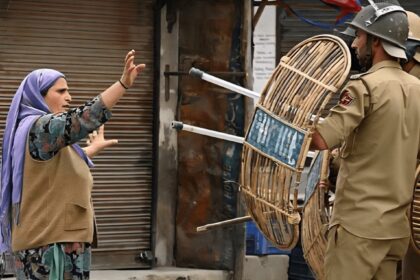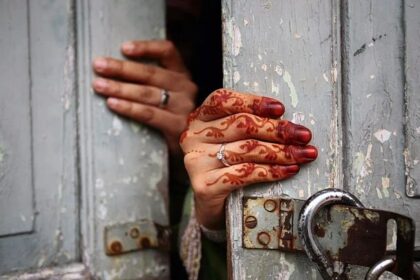The scene at a Pakistani Nikkah is a vibrant one. The hall is brightly lit, fragrant with flowers, and filled with the lively chatter of long-lost friends and family. Children run around excitedly, while women adorned with sparkling jewelry catch the light. Aunties warmly embrace guests, inquiring about their marital status and children. It is truly a communal celebration where people reconnect after years of separation. Amidst the celebrations, in a separate corner, the Imam, along with the fathers and brothers of the bride and groom, engages in negotiations, seemingly detached from the celebratory atmosphere. Here, the legal terms of the marriage are finalized; the bride is never present there, and often the groom is excluded from the negotiations as well. The bride and groom are primarily concerned with the aesthetic aspects of their wedding, such as their dresses and the photo shoot. They are treated more like decorative elements on display than active participants in the process. Consequently, they don’t fully engage in discussing the legal implications of the marriage contract, largely due to a lack of understanding about its significance.
In the bridal room, the bride is informed that the Imam is awaiting her signature on the Nikkah Nama. Presented with a decorated pen, she signs the document, giving her consent to the marriage, but is it an informed consent if the bride is signing it without fully understanding the legal implications of the contract? Research suggests that a significant number of women in Pakistan, almost 51%, are unaware of their legal rights as outlined in the Nikkah Nama.
“Many people read their Nikkah Nama years after they have signed it, and sometimes they read it in utter surprise, finding out how their legal rights were never granted to them while they signed the paper.”
says Usman Zia, a graduating student of the Cultural Studies Department at the National College of Arts (NCA).
Usman, in his final year research paper, explored the impact of patriarchal practices on controlling women’s agency in marital negotiations of Nikah Nama. He explored how our traditional practices undermine the agency of the bride and groom while they sign the paper and are dominated by the elderly members of the family and the imam. In his research paper, he quotes that “85% of women are uninvolved in the completion of Nikah Nama, and 60% of marriage contracts omit sections with rights granted to women.”
The Nikah Nama process often sheds light on the pervasive societal norms that discourage women from questioning male authority. In the chaotic events of a wedding, fearful and nervous, many brides blindly sign the contract, viewing it as a mere formality. This lack of understanding leaves them vulnerable to exploitation and financial hardship after marriage. Many women who later seek divorces from their spouses face limitations in their authority as their legal rights were never granted to them. Furthermore, the control exerted by male elders during the Nikah Nama perpetuates broader societal issues, contributing to domestic disputes and undermining women’s ability to protect themselves.
“I asked almost 500 people to give their Nikkah Nama, and I acquired 35 complete documents that had most of the sections crossed and not filled by both the bride and the groom.”
adds Usman.
His thesis exhibition at the National College of Arts (NCA) featured artistic representations of Nikkahnamas. These displays often showed crucial sections missing or crossed out, highlighting the importance of understanding the legal implications of this marriage contract. He aims to expand his work, eventually, with a documentary that can serve as an awareness and educational tool for women across Pakistan. His study emphasizes the need to empower women to actively participate in their marital contracts, bridging the gap between their legal rights and their practical application.
The Nikah Nama, while legally binding, is often treated as a mere formality. Raising awareness about its importance and ensuring its proper completion are crucial steps towards protecting women’s rights and promoting equality within marriages.
















